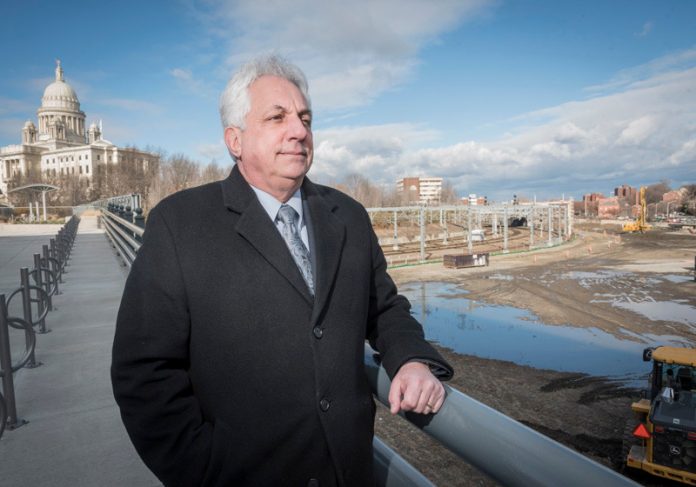
PROVIDENCE – What will the Providence transit hub look like? For starters, it may not be a hub at all. The project is in flux.
The R.I. Department of Transportation is prepared to drop its original hope to incorporate the publicly-financed transportation hub into a larger private development, as part of a public-private partnership, because the private interest wasn’t lasting.
In an interview with the Providence Business News, RIDOT Director Peter Alviti Jr. said the state was still in discussions with one development company that had responded to its 2017 Request For Qualifications on a transit hub proposal. But it’s also moving ahead on a “Plan B” that would involve not a hub at all, but a dispersed system that better integrates the various transit components.
“We’re actually looking at spreading it out over two or three different sites,” he said. “… more of a distributed transit system that has multiple locations.” This could allow transit connections to happen over the length of downtown, he said.
The state should decide within a few months how it’s going to proceed, he said.
But two issues have already been decided, he said. A transit facility will not be developed on the Statehouse lawn. And it won’t involve the realignment of Gaspee Street, both options under a previous plan.
In 2016, the state suggested private land could be part of the project and said it would help facilitate a transfer. In a revised 2017 RFQ, RIDOT identified two sites near the Statehouse as potential development locations, including part of the Statehouse lawn and a public greenspace called Station Park.
The problem for the private investment in the project isn’t the location but the Providence market around the Capital Center district, Alviti said. And the costs associated with site development were factors, as well.
“Some of the issues involved with it are an unwillingness of some of the private-sector developers to, at this point, make considerable investment in commercial kinds of office space … and or housing,” Alviti said. “There is a market that’s already being met. The volume that project like this would have added to it, it’s questionable whether the market is there for that.”
In 2014, Rhode Island voters authorized $35 million for construction of a central transportation hub in Providence, which would move the buses off historic Kennedy Plaza. The fact that the facility may no longer be a single “hub” doesn’t mean the public funds can’t be used for the improvements, he said.
Moving the buses out of the center of the city downtown remains a priority, Alviti said.
Mary MacDonald is a staff writer for the PBN. Contact her at macdonald@pbn.com.












